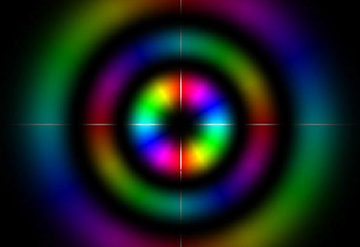Photons provide both the briefest known events in the universe – optical pulses of order 10-16 seconds in duration – and the means to measure the age of the universe itself (1017 seconds) via the spectrum of microwave background radiation. The scope and use of photonics in the 21st century, over 50 years after the invention of the laser, is vast and continually expanding, as basic research in the generation, manipulation, interaction, and detection of light fuels scientific discovery, the creation of novel applications, and the invention and engineering of new materials and devices for use in our everyday lives.

Researchers at the University of Oxford are at the forefront of developments in both fundamental and applied optics and photonics. From quantum photonics and metrology to super-resolution optical imaging, biophotonics, ultrafast spectroscopy, sensing, and laser processing, Oxford offers both a diverse range of expertise and a vibrant photonics community in which to study and work. The Photonics Network was set up by researchers in Chemistry, Engineering, Materials, Physics and biomedical departments, to organise optics and photonics related events and a range of interdisciplinary collaborative work. Activities started in 2011 and have been growing ever since.